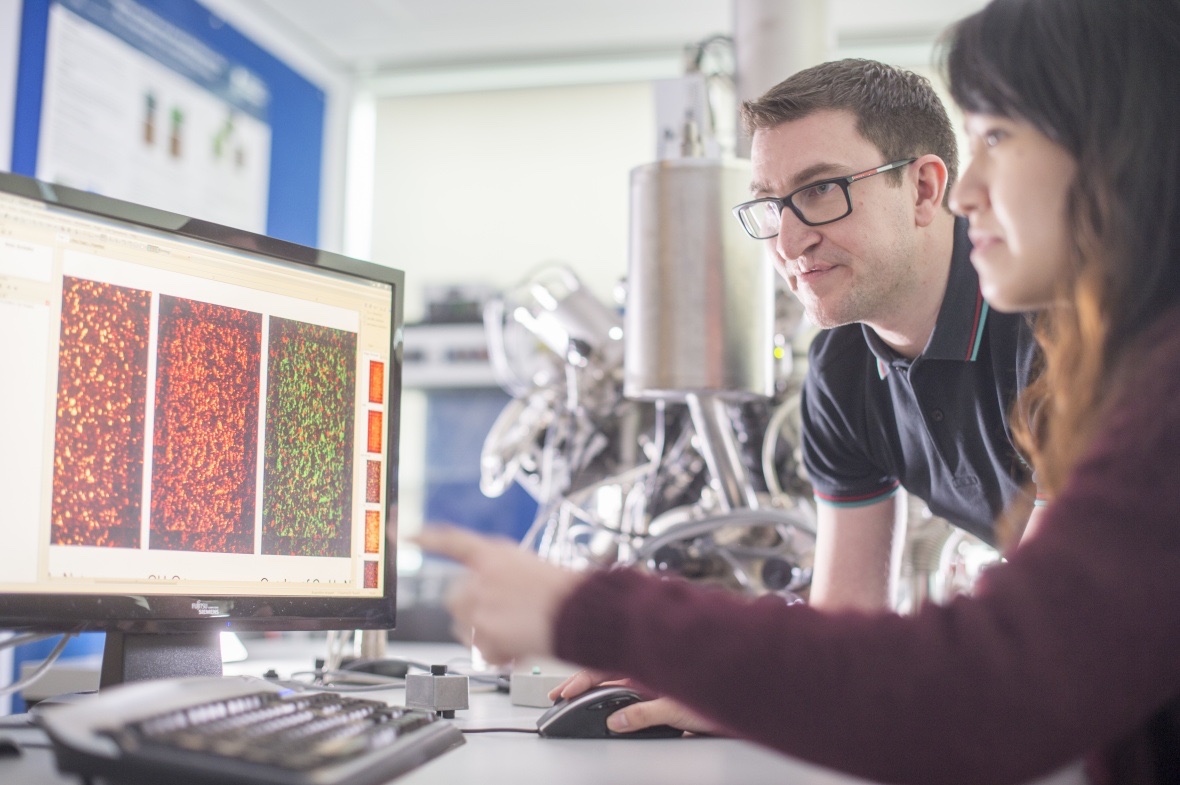Tuesday, 25 May 2021
Researchers have revealed for the first time that a peptide in a leading beauty product can penetrate the tough stratum corneum barrier of the skin.
A study between the University of Nottingham and No7, the UK’s number one skincare brand, used leading-edge technology to track the penetration of No7’s peptide blend Matrixyl 3000+™ following topical application to the skin surface. The findings offer an improved understanding of the bioavailability of topically applied peptides and provides further evidence for the efficacy of wrinkle targeting peptides.
Researchers used a tape-stripping method to remove layers of skin from study participants, in vivo, whilst maintaining the integrity of layers and structural features. A recently developed hybrid secondary ion mass spectrometry technique, 3D OrbiSIMS, was employed in the blinded study and detected the peptide penetrating into the tough stratum corneum barrier – the major obstacle and rate limiting step for the delivery of active ingredients into the skin (n=12; p<0.05 vs untreated).
The study used a recently popularised analytical technique to identify the peptide ten surface layers deep into the skin, whilst preserving the skin structure. Many other techniques rely on preparing skin samples for analysis by freeze-drying, fixing or staining, and therefore cannot be truly sure of the depth measured. “Never before have we been able to analyse the real-life penetration of the peptides in No7 in such detail,” writes Dr Mike Bell, No7 skincare scientific advisor:
For the first time, it has been possible to trace and detect the peptides responsible for tackling invisible photo-damage that occurs early in the ageing process. The 3D OrbiSIMS technique has opened up the possibility to track exactly where our peptides go to in the skin; now there are new insights into how to optimise delivery to make peptides even more effective.
 David Scurr, Senior Research Fellow, School of Pharmacy
David Scurr, Senior Research Fellow, School of Pharmacy
The flagship brand of the newly formed No7 Beauty Company, No7 was the first beauty brand in the UK to be able to demonstrate long term clinical and cumulative reductions in the appearance of lines and wrinkles on its Protect & Perfect Intense Advanced Serum. Since their creation, more than 5,000 women have been involved in the testing of all of No7’s serums across nearly 80 trials. In scientifically controlled clinical trials, over 90% achieved a visible reduction in the appearance of wrinkles. The company’s comprehensive approach to testing has proven that the serums dramatically slow the appearance of key signs of ageing, with advanced formulations that target damage; and now, its most recent testing with the 3D OrbiSIMS technique has given even greater insights into the powerful technology at the heart of the serums.
The University of Nottingham was the first University in the world to own and operate the 3D OrbiSIMS instrument. The technology facilitates an unprecedented level of molecular analysis for a range of materials including biological tissues, such as human skin. Importantly, its high mass resolving power, chemical specificity and high sensitivity allow it to be used on human skin samples to identify and analyse low concentrations of active ingredients that resemble native components of the skin, such as collagen peptides.
“This level of analysis of the Matrixyl 3000+™ peptide blend has not been possible until now. In the future, the technology may also allow us to identify new biochemical biomarkers of ageing and disease,” says Dr Mike Bell.
Story credits
More information is available from Dr David Scurr on David.Scurr@nottingham.ac.uk
Notes to editors:
About the University of Nottingham
Ranked 97 in the world and 17th in the UK by the QS World University Rankings, the University of Nottingham is a founding member of Russell Group of research-intensive universities. Studying at the University of Nottingham is a life-changing experience, and we pride ourselves on unlocking the potential of our students. We have a pioneering spirit, expressed in the vision of our founder Sir Jesse Boot, which has seen us lead the way in establishing campuses in China and Malaysia - part of a globally connected network of education, research and industrial engagement.
Nottingham was crowned Sports University of the Year by The Times and Sunday Times Good University Guide 2024 – the third time it has been given the honour since 2018 – and by the Daily Mail University Guide 2024.
The university is among the best universities in the UK for the strength of our research, positioned seventh for research power in the UK according to REF 2021. The birthplace of discoveries such as MRI and ibuprofen, our innovations transform lives and tackle global problems such as sustainable food supplies, ending modern slavery, developing greener transport, and reducing reliance on fossil fuels.
The university is a major employer and industry partner - locally and globally - and our graduates are the third most targeted by the UK's top employers, according to The Graduate Market in 2024 report by High Fliers Research.
We lead the Universities for Nottingham initiative, in partnership with Nottingham Trent University, a pioneering collaboration between the city’s two world-class institutions to improve levels of prosperity, opportunity, sustainability, health and wellbeing for residents in the city and region we are proud to call home.
More news…